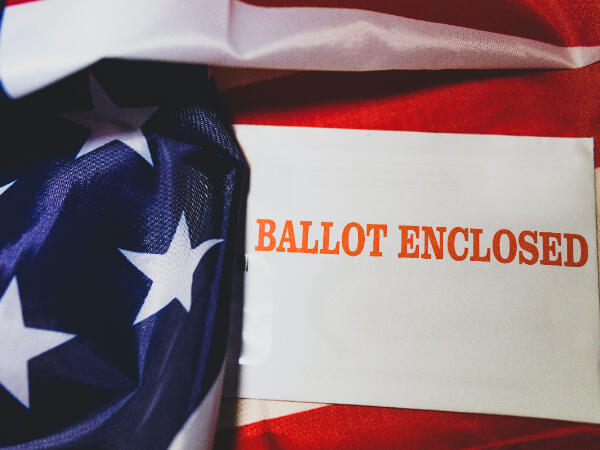Seymour Flops
Diamond Member

Election Integrity: 50% Think Cheating Likely in Midterms
Many voters still believe cheating affected the 2020 presidential election, and a majority fear the upcoming midterm elections could be tainted by cheating.
A new national telephone and online survey by Rasmussen Reports and The National Pulse finds that 52% of Likely U.S. voters believe it is at least somewhat likely that cheating affected the outcome of the 2020 presidential election, including 36% who think it is Very Likely. Forty-three percent (43%) don’t believe it’s likely cheating affected the 2020 outcome, including 30% who say it’s Not At All Likely. These findings are similar to previous surveys in May and March. (To see survey question wording, click here.)
Fifty percent (50%) of voters think it is at least somewhat likely there will be widespread cheating that will affect the outcome of this fall’s congressional elections, including 24% who say it’s Very Likely. Forty-one percent (41%) don’t believe cheating is likely to affect the November midterms, including 22% who say it’s Not At All Likely.
Voters remain skeptical of the integrity of vote-by-mail. Fifty-eight percent (58%) think it’s at least somewhat likely that wider use of mail-in voting will lead to more cheating in elections, including 39% who say it’s Very Likely. Thirty-six percent (36%) don’t believe mail-in voting is likely to lead to more cheating, including 16% who say it’s Not At All Likely. In October 2021, 65% said wider use of mail-in voting would lead to more cheating in elections.
It is relatively easy, compared to landing a man on the moon, or getting a vaccine developed and approved in a matter of months, or winning a war against both Germany and Japan's military machines, to ensure election security. The steps demanded by people concerned about cheating are pretty simple: Photo ID to register, photo ID to vote, and no absentee ballots except in limited and tightly controlled situations like military service, would easily address the concerns of voters who now wonder whether their vote even matters any more.
If the Democrat care so much about Democracy, they would demand the same thing. Especially an honest Dem who honestly believes that there is no significant cheating by Dems. If a Dem believes that, they should be willing to tighten up election security as you suggest so that confidence in Democracy is restored.
Suppose there is no widespread cheating. There is no way to prove that, since cheating is by nature furtive, and little to no resources are spent in catching it. But just suppose that the majority of Americans are wrong, and that in the reality that they don't know, there is very little cheating and what little there is on both sides cancel each other out.
It is not impossible that this is the reality. Perceptions can be wrong.
But . . . there is at this moment in time widespread perception of cheating and that is just as dangerous to Democracy, if not more so.
It's not just Trump cultists who are concerned about cheating:
Asked which is more important in elections, 59% say making sure there is no cheating is more important, while 38% say making it easier for everybody to vote is more important. Those findings are almost unchanged from May.
Seventy-six percent (76%) of Republicans, 37% of Democrats and 64% of voters not affiliated with either major party think it’s more important to make sure there is no cheating in elections. Sixty percent (60%) of Democrats, 20% of Republicans and 33% of unaffiliated voters say making it easier for everybody to vote is more important.
If large chunks of the country lose interest in democracy as a way to affect change because they believe in the old meme, "if voting mattered, they wouldn't let us do it," they are not just going to passively accept their fate of being ruled by corrupt elites. They are going to look for ways outside of democracy to free themselves. That is the danger.
It is easy enough to vote. The above numbers show that more than half the Republicans and Democrats combined think it is more important to make sure there is no cheating than to make voting easier. With that kind of support for eliminating cheating, it should be an easy decision to take on a relatively easy mission.

